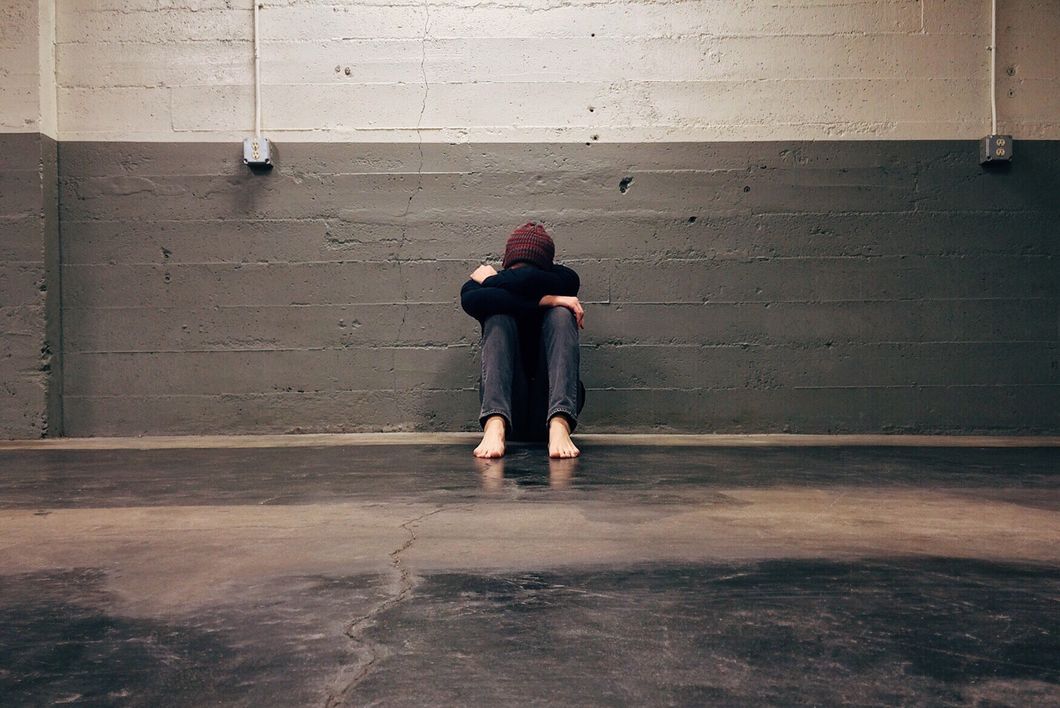1. Past Tense
One of the hardest transitioning parts during the period of grief is the sudden shift in language. You'll be reminiscing about the loved one that you've lost all of a sudden you no longer know how to speak. After losing my grandfather, I constantly felt like I was correcting myself when I spoke about him. "Oh he loves that so much... loved. He loved that." When you catch yourself and try to stop yourself, it's like grieving all over again.
2. 'I hate to say it, but...'
God, those 6 words just seem to be a never-ending mantra. You'll say those sentences quietly as if someone could be overhearing your conversation and wonder what the hell is wrong with you. 'I hate to say it, but I'm glad it didn't happen this way' or 'I hate to say it, but I'd rather him pass away than be in constant pain' and so on. I never thought six simple words could drive me so insane, but once you say them over and over again about every little aspect, it's just so tiring.
3. The sudden time period
Another thing about grief that I have heard literally nobody talk about is this sudden pressure on you to grieve in a timely manner. Not just a timely manner, but timely enough so you're not an inconvenience to people who are a part of your daily life. Bosses, friends, associates. Once your loved one takes their last breath, it's like a stopwatch begins and you're suddenly expected to be over it within a month or two months or six. Newsflash: You can't put a clock on bereavement.
4. The judgement is real
When you lose someone close to you, there are going to be people who are watching you like a hawk. Your every move, your every word, waiting to be judged. It's a harsh reality, but a very real one at that. You can't be 'too depressed' or 'too not depressed' either. There's a sudden pressure of having to find some sort of happy medium with your emotions. You have to keep it together as to not seem crazy, but you can't have it all together or you're heartless. You know that the moment you leave the funeral or calling hours, your neighbors mother (or whoever) will go home and say something like 'oh, she seemed so out of sorts' or 'she seemed so unbothered' and it sucks! No, I'm not okay, thanks for asking.
5. You Vs. Them
'They wouldn't want you to be sad.' The infamous line has been heard by everybody at some point in the grieving period. I think I've heard this so much, I might as well tattoo it on my forehead that I KNOW. Saying this to someone who is mourning can be calming, but it can also be damaging. Yes, I understand that my loved one wouldn't want me wallowing in sadness, but I'm not just grieving for them. I'm doing it for me too. This is my healing. Whatever I'm feeling needs to be felt or it will never go away. So, I know my loved one wouldn't want me to cry, but I'm still going to cry! Telling someone not to feel whatever they are feeling because X person wouldn't want them to, that's adding guilt into their plethora of emotions. They already miss their loved one and they're in a sensitive state and wouldn't want to do anything that would upset the person they just lost. So, some people will take those words to heart and they will refuse to allow themselves to feel those emotions. That isn't helping.
Maybe next time say something like "They loved you very much." I can tell you firsthand as someone who is currently grieving, those words are so much better than hearing what my loved one would and wouldn't want me feeling.
6. The impending uphill battle
It seems to be similar to a human instinct when we lose someone, that we know it is going to be painful. More than anything, you suddenly know that you are going to need to feel every single bit of heart-breaking, gut-wrenching pain in order for it to be over. I can only describe it as an out of body experience. You see yourself from the outside looking in and see what is coming. You don't know how you're going to grieve or how long it's going to take, but you know it's going to be painful. Not only that, but you know that there is no way around it. I wonder sometimes if this is where the 'denial' part of grief can manifest. Maybe the denial aspect isn't just denying that your loved one is gone, but denying that you're still in the thick of your emotions. You pretend to be okay until you just can't pretend anymore, and every emotion that you tried to ignore is going to come out sooner or later. It isn't a fake it 'till you make it kind of situation. You will not ever be done grieving until you have left the grief run its entire course.

















